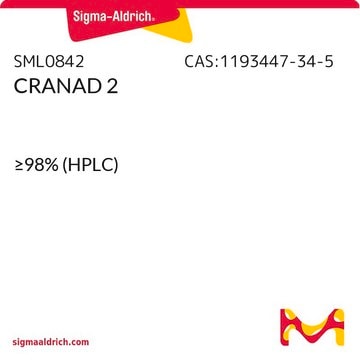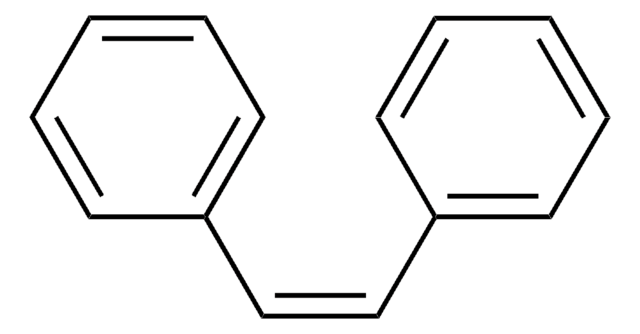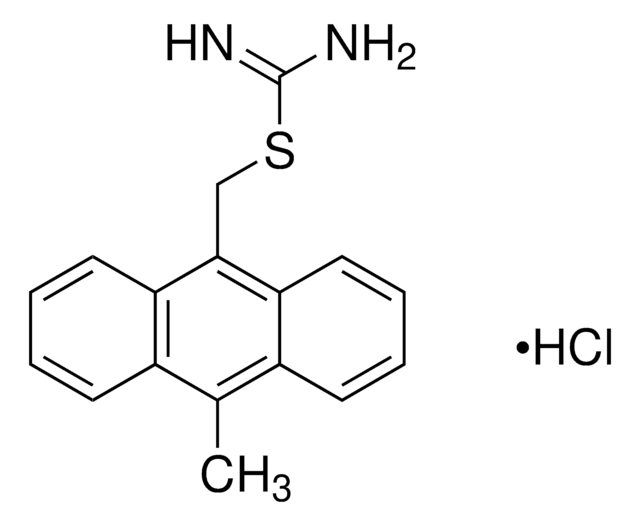SML0954
Thiocolchicine
≥97% (HPLC)
Synonym(s):
10-Demethoxy-10-(methylthio)colchicine, 10-Thio-colchicine, N-[(7S)-5,6,7,9-Tetrahydro-1,2,3-trimethoxy-10-(methylthio)-9-oxobenzo[a]heptalen-7-yl]-acetamide, NSC 186301
About This Item
Recommended Products
Quality Level
Assay
≥97% (HPLC)
form
powder
color
white to beige
solubility
DMSO: 10 mg/mL, clear
storage temp.
−20°C
InChI
1S/C22H25NO5S/c1-12(24)23-16-8-6-13-10-18(26-2)21(27-3)22(28-4)20(13)14-7-9-19(29-5)17(25)11-15(14)16/h7,9-11,16H,6,8H2,1-5H3,(H,23,24)/t16-/m0/s1
InChI key
CMEGANPVAXDBPL-INIZCTEOSA-N
1 of 4
This Item | C9754 | C3915 | C9538 |
|---|---|---|---|
| assay ≥97% (HPLC) | assay ≥95% (HPLC) | assay ≥95% (HPLC) | assay ≥98% (HPLC) |
| Quality Level 100 | Quality Level 200 | Quality Level 200 | Quality Level 200 |
| storage temp. −20°C | storage temp. - | storage temp. - | storage temp. −20°C |
| solubility DMSO: 10 mg/mL, clear | solubility ethanol: 50 mg/mL | solubility - | solubility - |
| color white to beige | color white to yellow | color - | color yellow to dark orange |
Biochem/physiol Actions
Signal Word
Danger
Hazard Statements
Precautionary Statements
Hazard Classifications
Acute Tox. 1 Inhalation - Acute Tox. 2 Oral - Eye Dam. 1 - Muta. 1B
Storage Class Code
6.1A - Combustible acute toxic Cat. 1 and 2 / very toxic hazardous materials
WGK
WGK 3
Flash Point(F)
Not applicable
Flash Point(C)
Not applicable
Certificates of Analysis (COA)
Search for Certificates of Analysis (COA) by entering the products Lot/Batch Number. Lot and Batch Numbers can be found on a product’s label following the words ‘Lot’ or ‘Batch’.
Need A Sample COA?
This is a sample Certificate of Analysis (COA) and may not represent a recently manufactured lot of this specific product.
Already Own This Product?
Find documentation for the products that you have recently purchased in the Document Library.
Our team of scientists has experience in all areas of research including Life Science, Material Science, Chemical Synthesis, Chromatography, Analytical and many others.
Contact Technical Service












